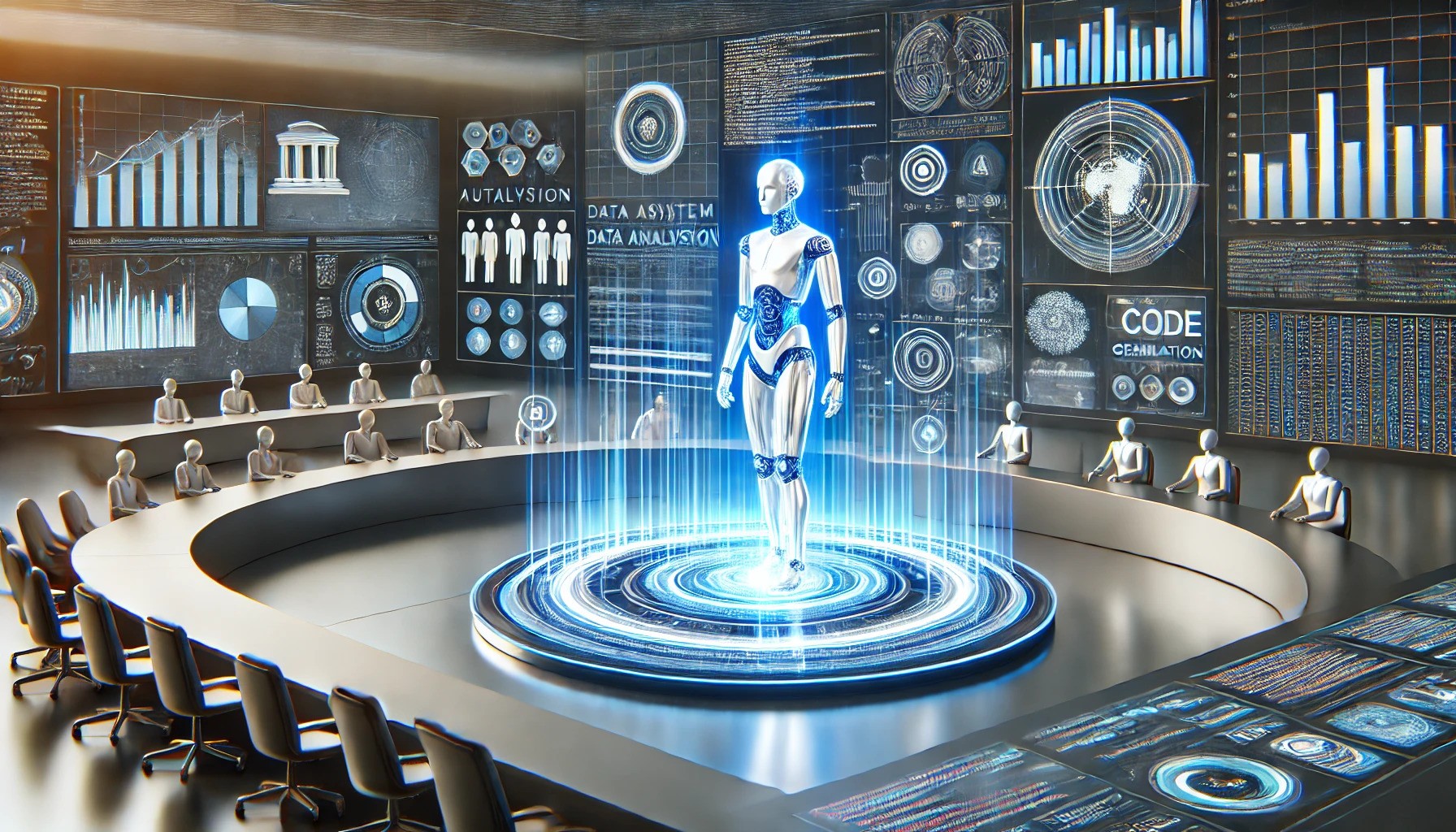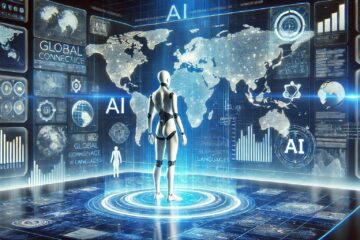Meet OpenAI’s Next Big Thing: AI Assistants That Could Match Human Experts
In a groundbreaking development that’s sending ripples through the artificial intelligence community, OpenAI is reportedly preparing to unveil a new generation of AI “super-agents” capable of performing complex tasks at a PhD level. However, this announcement has sparked intense debate among experts about the feasibility and reality behind these ambitious claims.
The Promise of AI Super-Agents
According to recent reporting by Axios, OpenAI’s latest innovation represents a significant leap forward in artificial intelligence capabilities. These AI super-agents are designed to handle sophisticated, multi-step tasks that traditionally required advanced human expertise. Unlike current AI models that primarily respond to specific prompts, these super-agents would potentially work autonomously to achieve complex goals.
The Political Dimension
The timing of this announcement coincides with significant political events in Washington DC. OpenAI CEO Sam Altman is scheduled to attend President-elect Donald Trump’s inauguration on January 20, followed by a closed-door briefing with government officials on January 30. This high-level engagement with government stakeholders suggests the potentially transformative nature of these developments.
- OpenAI’s Ambitious Vision: AI Super-Agents Promise PhD-Level Capabilities, But Experts Remain Skeptical
- The Promise of AI Super-Agents
- The Political Dimension
- Understanding Super-Agent Capabilities
- Expert Skepticism and Reality Check
- The AGI Speculation
- Challenges and Implementation Hurdles
- The o3 Model Controversy
- Looking Forward
- Frequently Asked Questions About OpenAI’s AI Super-Agents
- What exactly are OpenAI’s AI super-agents?
- How are super-agents different from current AI models like ChatGPT?
- When will OpenAI’s super-agents be available to the public?
- Can these AI super-agents really perform at a PhD level?
- What are the main challenges in developing AI super-agents?
- Are AI super-agents the same as artificial general intelligence (AGI)?
- What industries could benefit from AI super-agents?
- What are the potential risks of AI super-agents?
- How is OpenAI addressing concerns about super-agents?
- What do critics say about these developments?
- Key Takeaways
Understanding Super-Agent Capabilities
What sets these AI super-agents apart is their proposed ability to:
- Synthesize massive amounts of information autonomously
- Execute complex, multi-step tasks without constant human intervention
- Deliver complete, functional solutions rather than just theoretical frameworks
- Operate at a level comparable to human experts in specialized fields
For example, when tasked with creating a payment application, these super-agents wouldn’t just generate code or provide instructions. Instead, they would theoretically manage the entire development process from design to testing and implementation.
Expert Skepticism and Reality Check
However, prominent voices in the AI community have expressed significant skepticism. Computer scientist Gary Marcus notably challenged these claims on social media platform X, stating, “We will not have ‘PhD level SuperAgents’ this year. We don’t even have high-school level Task reminders.”
OpenAI researcher Noam Brown has also urged caution, noting that while progress in AI is promising, numerous fundamental research challenges remain unsolved. This tempered perspective from within OpenAI itself adds crucial context to the discussion.
The AGI Speculation
The announcement sparked speculation about potential breakthroughs in artificial general intelligence (AGI). However, Sam Altman quickly addressed these rumors, explicitly stating, “We are not gonna deploy AGI next month, nor have we built it.” This clarification helps ground the discussion in current technological realities rather than future possibilities.
Challenges and Implementation Hurdles
Several critical challenges must be addressed before AI super-agents can be practically deployed:
- Ensuring consistent reliability in complex task execution
- Preventing information hallucination and maintaining accuracy
- Establishing appropriate safety measures and controls
- Developing clear frameworks for human oversight and intervention
The o3 Model Controversy
Adding another layer to this development, OpenAI faces scrutiny over its upcoming o3 model. The controversy centers around the company’s funding relationship with Epoch AI, which recently developed the FrontierMath benchmark test. This situation highlights the complex relationships and potential conflicts of interest within the AI development ecosystem.
Looking Forward
As the AI industry continues its rapid evolution, the development of super-agents represents both exciting possibilities and significant challenges. While the potential for revolutionary advancement exists, the reality may lie somewhere between the ambitious promises and skeptical dismissals.

Frequently Asked Questions About OpenAI’s AI Super-Agents
What exactly are OpenAI’s AI super-agents?
AI super-agents are advanced artificial intelligence systems reportedly being developed by OpenAI to perform complex, goal-oriented tasks at a PhD level of expertise. Unlike current AI models that simply respond to prompts, these agents are designed to work autonomously across multiple steps, synthesizing information and delivering complete solutions to complex problems.
How are super-agents different from current AI models like ChatGPT?
While current AI models primarily focus on generating responses to specific prompts, super-agents are designed to handle entire projects autonomously. For example, instead of just providing code snippets, a super-agent could potentially manage the entire process of creating a software application, from design through testing and implementation.
When will OpenAI’s super-agents be available to the public?
OpenAI hasn’t announced a specific release date, but reports suggest announcements may come in the next few weeks. However, given the complexity of the technology and the need to address various challenges, the initial release might be limited or in a testing phase.
Can these AI super-agents really perform at a PhD level?
This claim has been met with significant skepticism from experts. While the technology shows promise, many researchers, including computer scientist Gary Marcus, argue that current AI technology isn’t capable of consistently performing at such an advanced level. Even high-school-level task management remains challenging for current AI systems.
What are the main challenges in developing AI super-agents?
Key challenges include:
- Ensuring reliable and consistent performance across complex tasks
- Preventing information hallucination and maintaining accuracy
- Developing effective safety measures and controls
- Creating systems for meaningful human oversight
- Managing the ethical implications of autonomous AI systems
Are AI super-agents the same as artificial general intelligence (AGI)?
No. While super-agents represent an advancement in AI capabilities, they are not AGI. OpenAI CEO Sam Altman has explicitly stated that the company has not built AGI and won’t be deploying it in the near future. Super-agents are specialized tools designed for specific types of complex tasks.
What industries could benefit from AI super-agents?
Potential applications include:
- Software development and technology
- Scientific research and data analysis
- Business strategy and planning
- Financial modeling and analysis
- Healthcare research and diagnosis
- Educational content development
- Complex project management
What are the potential risks of AI super-agents?
Several concerns have been raised:
- Reliability and accuracy of autonomous decision-making
- Potential displacement of human expertise
- Security and privacy implications
- Ethical considerations in delegation of complex tasks
- Impact on job markets and professional services
How is OpenAI addressing concerns about super-agents?
While specific details aren’t public, OpenAI appears to be:
- Engaging with government officials and regulators
- Conducting closed-door briefings with stakeholders
- Developing benchmarks and testing frameworks
- Working on safety measures and control mechanisms
What do critics say about these developments?
Critics, including some AI researchers and industry experts, suggest that:
- The capabilities may be overstated
- The timeline for development might be unrealistic
- Current AI limitations make PhD-level performance unlikely
- More transparency is needed about the technology’s actual capabilities
Key Takeaways
- OpenAI’s proposed AI super-agents aim to perform PhD-level tasks autonomously
- Expert opinion remains divided on the feasibility of these claims
- Significant technical and practical challenges must be overcome
- The development occurs against a backdrop of political engagement and industry controversy
- Realistic expectations may differ from initial announcements




